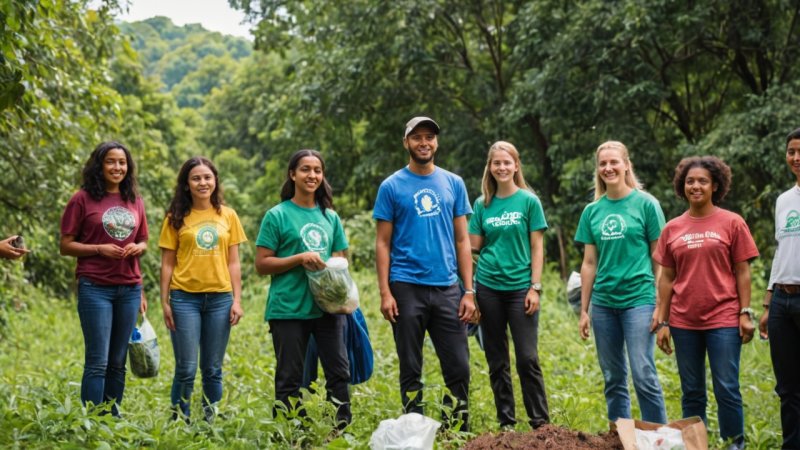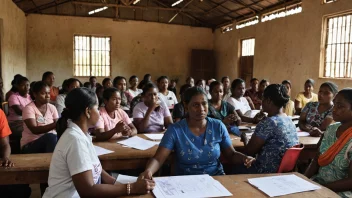Introduction
Environmental refugees are individuals who have been forced to flee their homes due to environmental factors such as natural disasters, climate change, and degradation of their living environment. This article will guide you on how to support these vulnerable populations through various actions, from raising awareness to volunteering with organizations dedicated to their cause.
Step 1: Educate Yourself About Environmental Refugees
The first step in supporting environmental refugees is to understand their challenges and the reasons behind their displacement.
- Read Articles and Reports: Start by reading up-to-date articles and reports from reputable organizations such as the United Nations High Commissioner for Refugees (UNHCR) and the International Organization for Migration (IOM).
- Watch Documentaries: Visual storytelling can be powerful. Look for documentaries that focus on the plight of environmental refugees to gain a deeper understanding.
- Follow Experts: Follow researchers, activists, and organizations on social media platforms to stay informed about ongoing issues and solutions.
Step 2: Raise Awareness in Your Community
Once you're educated on the topic, the next step is to raise awareness among your peers.
- Host Informative Sessions: Organize community discussions or workshops to educate others about environmental refugees.
- Utilize Social Media: Share articles, infographics, and personal stories on your social media platforms to spread awareness.
- Start a Petition: If there are local policies that need change regarding environmental refugees, consider starting a petition to garner support.
Step 3: Volunteer with Organizations
Hands-on involvement can have a significant impact. Look for local or international organizations that work with environmental refugees.
- Research Organizations: Identify NGOs or community groups that focus on environmental issues and refugee support.
- Offer Your Skills: Whether it’s teaching, counseling, or administrative work, your skills can be invaluable to these organizations.
- Participate in Events: Join fundraising events, awareness marches, or volunteer days to support the cause actively.
Step 4: Advocate for Policy Changes
Advocacy is crucial in bringing about systemic change. Here’s how you can get involved.
- Contact Local Representatives: Write letters or emails to your local government officials urging them to consider policies that protect environmental refugees.
- Join Advocacy Groups: Many organizations focus on policy change regarding environmental issues. Join these groups to amplify your voice.
- Participate in Campaigns: Engage in campaigns that push for legislative changes at local, national, or international levels.
Step 5: Support Sustainable Practices
Reducing the environmental factors that contribute to displacement is essential. Here’s how you can help.
- Practice Sustainability: Adopt sustainable practices in your daily life, such as recycling, reducing waste, and conserving energy.
- Support Sustainable Businesses: Choose to buy from companies that prioritize environmental sustainability and ethical practices.
- Engage in Local Conservation Efforts: Participate in local tree planting, clean-up drives, and other environmental initiatives in your community.
Step 6: Provide Spiritual and Emotional Support
Environmental refugees often experience trauma and emotional distress. Here are ways to offer support.
- Listen and Validate: Sometimes, just being there to listen to their stories can be immensely helpful.
- Offer Counseling Services: If you are trained in mental health, consider offering your services to those in need.
- Create Support Groups: Establish or join support groups that focus on the emotional needs of displaced individuals.
Summary
Supporting environmental refugees requires a multifaceted approach. By educating yourself, raising awareness, volunteering, advocating for policy changes, supporting sustainable practices, and providing emotional support, you can make a significant difference in the lives of those affected by environmental displacement. Remember, every small action counts, and together we can create a more compassionate world.






